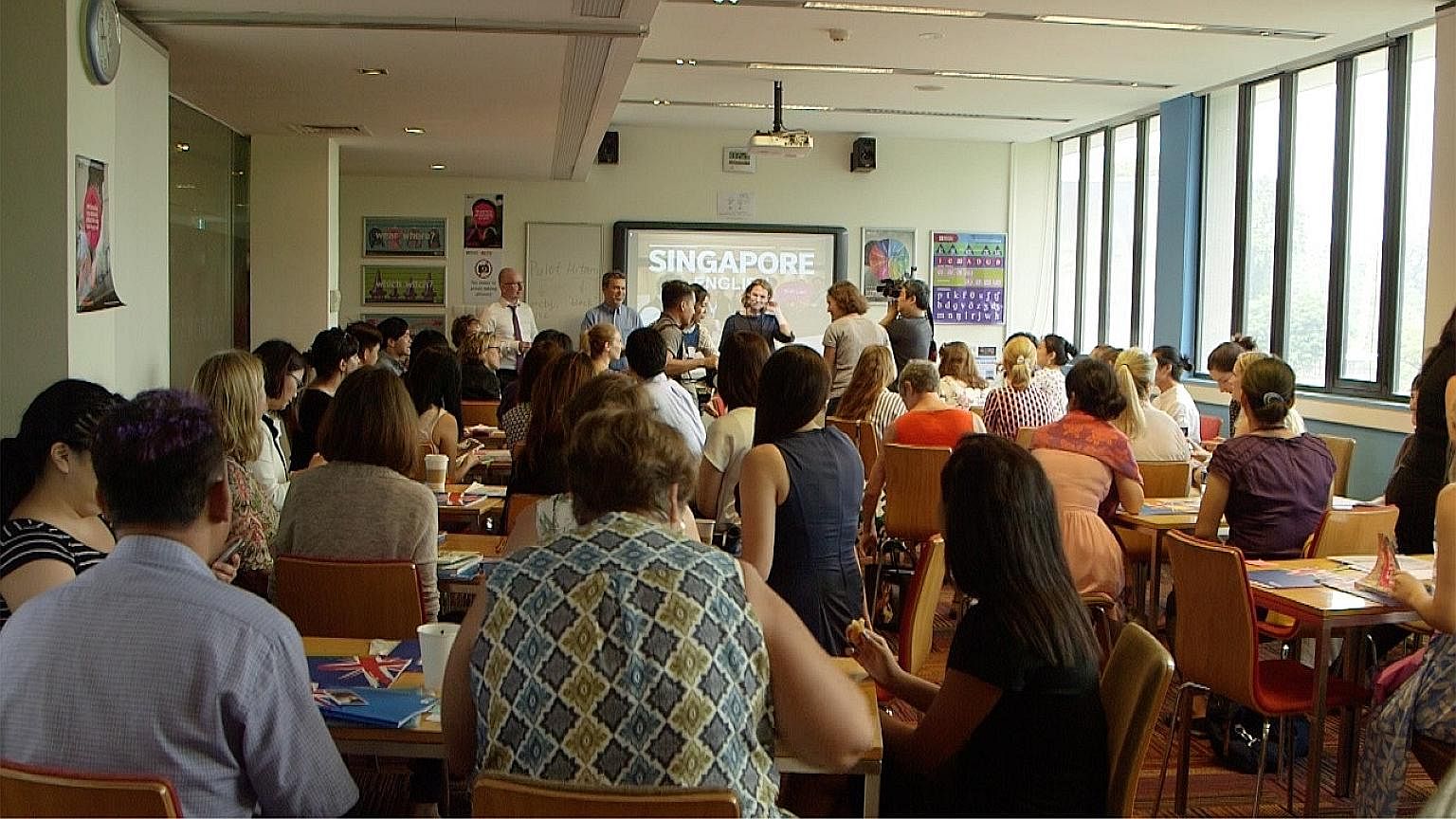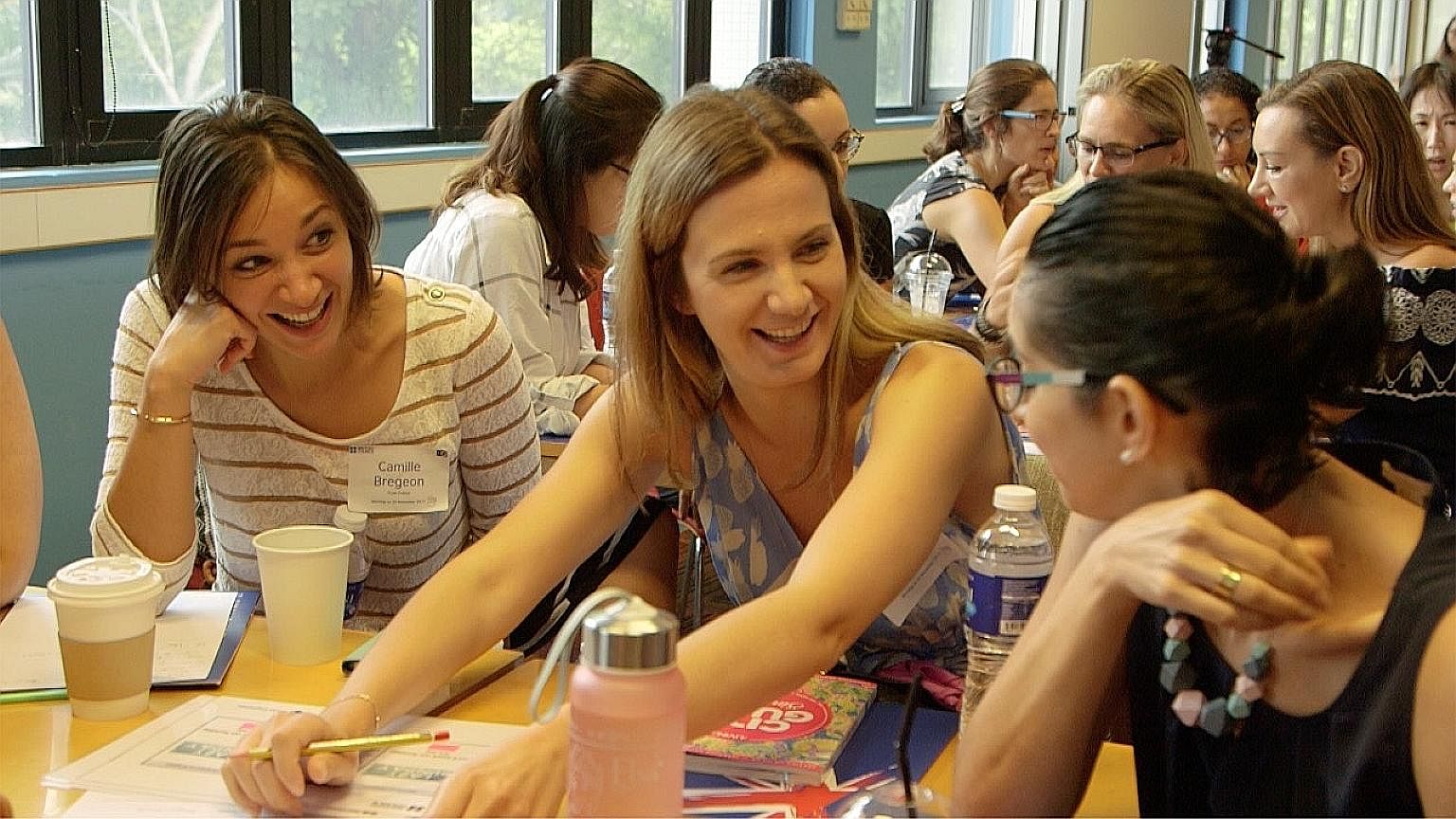The next time you are at a coffee shop, you might overhear an expatriate ordering "kopi-o siew dai" (coffee with less sugar) and even exclaim "shiok", a Singlish term for "very good", after a sip.
A number of foreigners in Singapore are attending informal classes to learn Singlish to better communicate with locals and understand the culture here.
Explained Hong Kong expatriate Karen Leung, 34: "I am going to live here, so Singlish is important to me. I want to speak like a local."
Ms Leung, who is currently looking for work, was one of many expatriates here who attended the British Council's free "Coffee Morning" sessions that provided lessons on Singlish and the local culture.
Topics included common English terms used here that could be unfamiliar to foreigners.
The coordinator, Ms Claire Firat, said Singlish is useful for expatriates to communicate effectively here. "It's not about learning to say 'lah' as much as it is about learning to understand how such terms are used," she said.
"When people start out in a new place, it can be difficult for them to find their way. Sometimes, they don't understand what is being said. Some expats also wonder if they can call a taxi driver 'uncle'."
The British Council is raising awareness among expatriates of how the language is used in Singapore. Singlish is often regarded as an English creole, or a language that originated as a mixed language. In Singlish, English words are mixed with terms from Malay, Mandarin, Chinese dialects and Tamil. The sentence structure and grammar of Singlish are also highly influenced by these languages.

The first Coffee Morning session was held in March and by the time the sixth was held last Monday, 253 participants of 39 nationalities had attended the sessions.
Expatriates learnt certain Singapore-specific terms, such as "slippers" (more commonly known as flip-flops to some) and "handphone" (mobile phone).
"I want people to understand what words mean when they are used, so they don't make a faux pas," Ms Firat said.
For instance, she initially thought a "void deck" was an empty space, without realising it was really the "heart of the community", specifically, the ground floor of many Housing Board blocks.
Other expressions that confuse expatriates include the invitation to "follow my car", which means to get into the car rather than to physically follow behind a car, said British Council trainer Jacqueline Fisher.

Said Ms Eleni Sardi, a 33-year-old Greek who works in the communications line: "My favourite word is 'shiok'. I will be using it quite often to describe the food I try here."
However, other expatriates such as Briton Alexander Knight, 44, a participant of the Expats in SG group here, said: "Singlish is not a business language and the expatriates I know are mostly here for business reasons, so I don't think it is that important to learn it."
Still, language experts said that there is value in picking up local languages such as Singlish. Associate Professor Tan Ying Ying, a linguist at the Nanyang Technological University, said that when expatriates learn Singlish through their local friends, it builds camaraderie.
Prof Tan, who noted that Singlish is not bad English just because someone does not understand it, said: "Singlish is a mark of friendship and familiarity. When expatriates can speak it, they feel more included and locals feel more comfortable with them."
Ms Firat agrees. "Using Singlish shows people you are interested (in their culture). It causes people, such as taxi drivers, to open up to you," she said.

